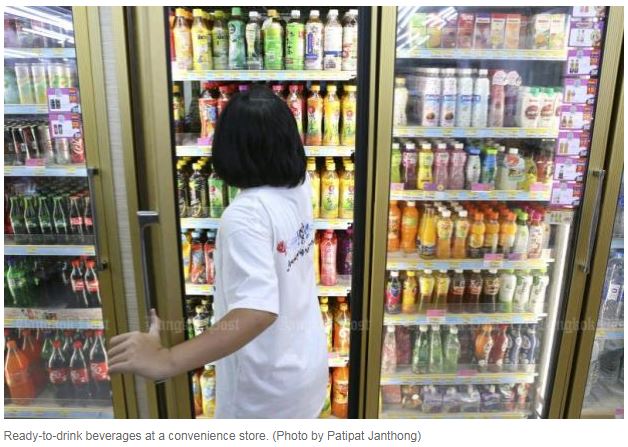Thailand: Fruit juice excise threshold could double
The Excise Department is set to raise the fruit and vegetable content requirement for a tax exemption for juices to at least 20% from a minimum 10% in an effort to boost local farmer income.
The new requirement is expected to take effect from Oct 1, said a source at the Excise Department.
The source said that whether the levy on sugar content in fruit and vegetable juices will be changed has yet to be determined.
The excise tax structure that went into force on Sept 16, 2017 changed the tax calculation base to suggested retail price from the ex-factory price and the cost, insurance and freight (CIF) value in a bid to stem loopholes used by some operators to understate tax. For fruit and vegetable juices, the excise tax comprises two parts: the excise tax charged based on suggested retail price and the sugary drink tax.
Under the existing excise tax, juices containing at least 10% fruit and vegetable extracts are tax-exempt, but they are still subject to a sweetened beverage tax, depending on the quantity of sugar.
For example, the minimum 10% fruit and vegetable juices are taxed at 10 satang per litre for 8-10 grammes of sugar until the end of September 2021. The levy will be raised to one baht a litre between Oct 1, 2021 and Sept 30, 2023 and three baht starting from October 2023.
If juices have less than 10% fruit and vegetable content, they are liable to both excise tax of 10% of suggested retail price and the sugary drink tax. For fruit and vegetable juices with sugar content of six grammes but not more than eight grammes, the tax is 10 satang per litre until Sept 30, 2021 before rising to 30 satang between Oct 1, 2021 and Sept 30, 2023, then one baht from Oct 1, 2023.
Patchara Anuntasilpa, director-general of the Excise Department, said the department could review the excise tax on fruit and vegetable juices.
If the levy is revised, the department must make the announcement by March, he said.
The price of fruit and vegetable juices affects farmers’ livelihoods, Mr Patchara said.
Sorapas Suttienkul, an adviser to Doi Kham Food Products Co, the maker and distributor of Doi Kham fruit juice, said the company’s products will not be affected if the Excise Department tweaks the requirements.
Consumer health would benefit if higher fruit content is required to qualify for the tax exemption, while farmers will benefit from selling more crops, he said.
“It’s good if the state amends the sugary drink tax,” Mr Sorapas said. “Since implementing the tax, consumers have been confused, thinking sugar in fruit is harmful to health, causing them to consume less fruit juice, even though juices have natural sugar.”
A source at a fruit juice maker said representatives from all drinks companies that could be affected by the new proposed tax will discuss the matter with the state agency.
“Unlike sugar in soft drinks, the sugar in fruit juice is not harmful to health,” the source said. “We would like the government to reconsider the new requirement, as it could deal a blow to many related parties. Fruit juice manufacturers’ operating costs have increased continuously over the past few years, and we must absorb the burden. We must pass on the additional cost if we cannot bear it anymore.”
Source: https://www.bangkokpost.com/business/news/1610678/fruit-juice-excise-threshold-could-double


 Thailand
Thailand




